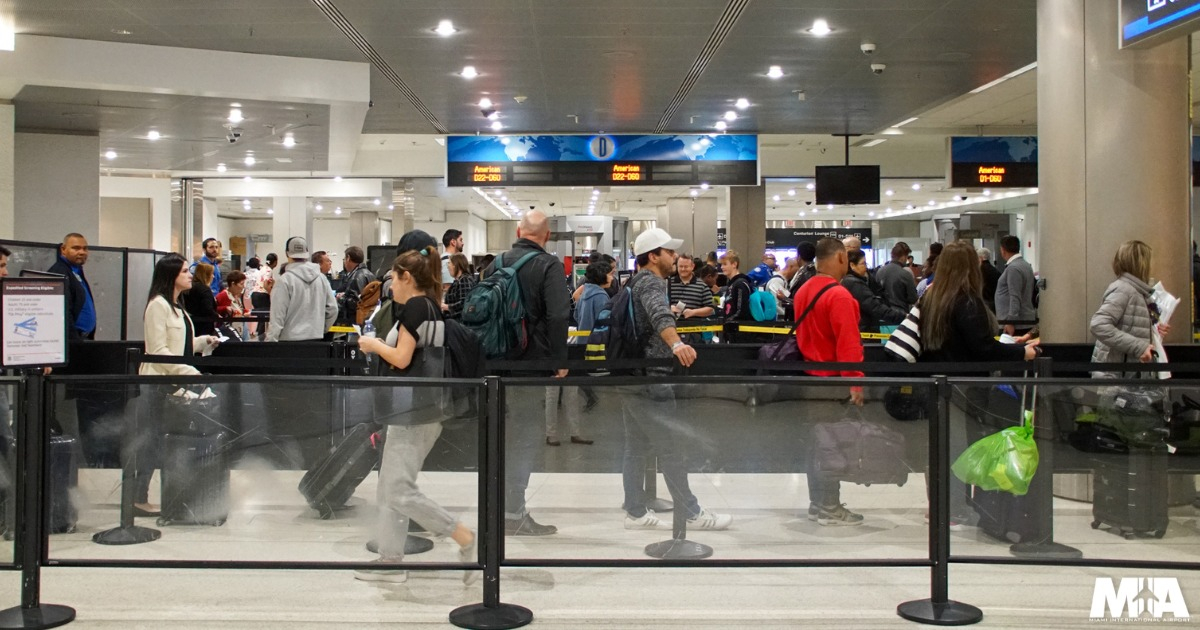
Related videos:
A new scandal erupted on Tuesday in Miami when it became known that an official delegation from the Cuban regime was invited and granted access to the control and security facilities of the city's International Airport (MIA).
The incident provoked an immediate reaction from Miami-Dade Commissioner Daniella Levine Cava, who issued a statement expressing her surprise at the visit of officials from the Cuban regime to strategic facilities in the city, managed by her office.
"Like many in our community, I was surprised to learn that a delegation from the Cuban government was invited to visit the Transportation Security Administration (TSA) facilities at Miami International Airport (MIA)," Levine Cava stated on social media.
According to their statements, "the decision to allow Cuban officials to access secure areas at MIA was made without the knowledge of the Miami-Dade Aviation Department (MDAD)."
The affront to Miami-Dade County comes in two parts, as Levine Cava noted that the unannounced visit "took place during the celebration of Cuba's Independence Day, a date on which we reaffirm our commitment to freedom and democracy in Cuba in the face of a brutal dictatorship."
"My office has directly contacted the Department of Homeland Security to understand how this decision was made and to request that the county and MDAD be included in any future decisions regarding granting access to MIA facilities to foreign government officials," he said.
Lastly, the mayor wanted to reaffirm the county's strong support "for the Cuban people here in our community and on the island as they continue their struggle to bring freedom to Cuba."
"We are committed to ensuring the safety of our community and all those traveling through our airport," concluded Levine Cava's statement.
For his part, Cuban-American Congressman Carlos A. Giménez denounced the Biden administration as responsible for what he deemed a "shameful and dangerous" visit, pointing to the U.S. Secretary of Homeland Security, the Cuban-American Democrat Alejandro Mayorkas.
"As President of National Security in Transportation Security, I will hold the Biden Administration accountable for its shameful and dangerous decision to grant agents of the Castro regime access to sensitive TSA facilities in MIA," said Giménez.
Similarities to previous scandals
In February 2023, Cuban-American Congressman Marco Rubio, a member of the Senate Intelligence Committee, expressed his "great concern" over the decision by the Departments of Homeland Security and State to host a Cuban delegation at the facilities of the United States Coast Guard (USCG) in Washington, D.C., and its port facilities in Wilmington, North Carolina.
Finally, the U.S. governmentdecided to suspend the visitThe delegation's visit to the Coast Guard headquarters was limited to the port area of Wilmington amid a political controversy led by Cuban-American congress members.
Days later, the Joe Biden administration clarified that the cancellation of the visit by Cuban officials to the USCG headquarters in Washington was solely due to a flight delay, and not the result of pressure from representatives.
"The Cuban delegation was expected to arrive in Washington, D.C. on Sunday, February 26, 2023, but was delayed until Monday, February 27, due to the cancellation of a flight. As a result of the travel delay, the visit to the main Coast Guard station was canceled," a State Department official told CiberCuba.
He also explained that "on March 1 and 2, officials from the Cuban Ministry of the Interior, the Ministry of Transportation, and the Ministry of Foreign Affairs visited the United States to meet with officials from the USCG and tour the port facilities in Wilmington, NC, as part of the International Port Security Program."
In June 2019, leaked documents revealed indications of espionage by the Cuban State Security at Miami International Airport.
A report from a special series by #CiberCubaleaks revealed that Cuba's intelligence services managed to acquire confidential information regarding the internal operations, operational records of airlines, and access to restricted areas at MIA, according to classified documents from the Ministry of the Interior (MININT) obtained by CiberCuba.
The intelligence documentation on the MIA is part of a batch of classified files provided by an anonymous source to this newsroom, containing hundreds of pages and multimedia files, bank transfers, contracts, emails, and private information about individuals of interest to the Cuban government. This marks one of the largest leaks of the MININT's secret files in its entire history.
At least six documents on the letterhead of the Counterintelligence Directorate of MININT, dated between 2015 and 2017, contained sensitive information that was sent to Havana by agents of the Cuban regime in fulfillment of espionage and data collection missions.
The revelations highlighted the interest of Cuban intelligence in a strategic facility located in U.S. territory, which in 2022 broke its record for passenger traffic by serving over 50.6 million travelers. This facility serves as the main gateway between the United States and Latin America, and is also the economic engine of South Florida, generating annual revenues in the billions of dollars.
Following the revelation, the MIA management responded to CiberCuba's report. Lester Sola, Director and CEO of MIA, stated in a statement that they had shared the report with their federal intelligence partners, but clarified that so far they had not seen "anything that could allow access to secure areas or compromise the security" of the facility.
He also explained that "all possible measures have been taken to ensure the safety of our passengers. We have strong protocols in place to control access to all areas of the airport, and we will continue to investigate these and other potential threats."
Filed under: